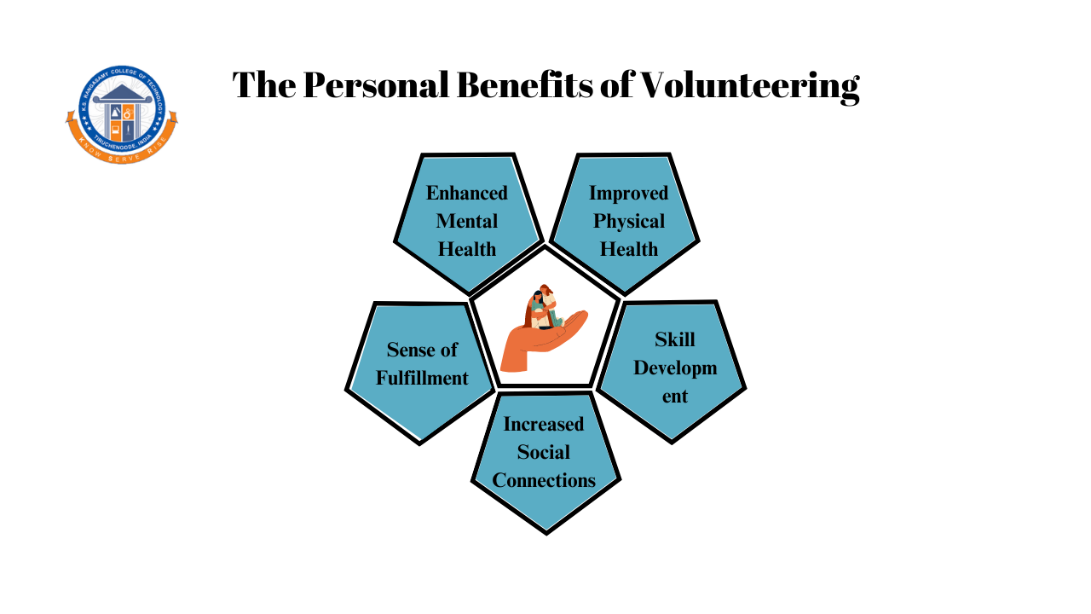Introduction:
Volunteering is an act of giving one’s time, energy, and skills to support a cause or organization without expecting any monetary compensation. It is a selfless act that not only benefits the recipient but also brings immense personal satisfaction and positive changes in the volunteer’s life. Volunteering is an excellent opportunity to contribute to society, learn new skills, meet new people, and gain a sense of purpose and fulfillment. In this blog post, we will explore the life-changing benefits of volunteering and why everyone should consider giving back to their community.

The Social Impact of Volunteering:
Volunteering has a profound social impact, both on the volunteers and the community. Volunteering allows individuals to contribute to society by supporting causes that they are passionate about. It brings together people from different backgrounds and experiences, fostering a sense of community and social cohesion. The impact of volunteering can be seen in various areas, including:
Education:
Volunteering in education involves helping students with homework, providing tutoring services, or participating in extracurricular activities. Education volunteering enables volunteers to contribute to the development of young minds and promote academic success. Volunteers can also learn valuable skills such as communication, leadership, and teamwork, which can be applied in other areas of their lives. KSRCT is one of the college which promotes volunteering.
Environment:
Volunteering in environmental causes involves activities such as cleaning up beaches, parks, or other natural habitats. Environmental volunteering allows individuals to contribute to the preservation of natural resources, protect endangered species, and promote sustainable living. Volunteers can also learn about environmental issues and how to reduce their carbon footprint, which can lead to a more environmentally conscious lifestyle.
Health:
Volunteering in health causes involves activities such as assisting in hospitals, nursing homes, or other healthcare facilities. Health volunteering allows individuals to contribute to the well-being of others, promote healthy living, and learn about health-related issues. Volunteers can also gain valuable skills such as compassion, empathy, and patience, which can be applied in other areas of their lives.
The Personal Benefits of Volunteering:
Volunteering not only has social benefits but also personal benefits that can enhance the quality of life of the volunteer. These benefits include:

Enhanced Mental Health:
The positive impact of volunteering on mental health has been proven. It provides a sense of purpose, promotes social connections, and reduces stress levels. Volunteering can also help individuals who are experiencing depression or anxiety by providing a sense of fulfillment and boosting self-esteem.
Improved Physical Health:
As well as improving one’s physical health, volunteering can also improve one’s mental health. Studies have shown that volunteering can lead to lower blood pressure, reduced risk of heart disease, and improved physical fitness. This is because volunteering often involves physical activities such as cleaning up parks or participating in charity walks.
Skill Development:
Volunteering provides an opportunity for individuals to learn new skills and gain valuable experience. These skills can be used to enhance career opportunities or personal growth. For example, volunteering in a hospital can provide valuable experience for someone pursuing a career in healthcare.
Increased Social Connections:
Volunteering can also lead to increased social connections. It provides an opportunity to meet new people and build meaningful relationships with individuals who share similar interests and values. This can be particularly beneficial for individuals who are new to an area or are looking to expand their social network.
Sense of Fulfillment:
Perhaps the most significant personal benefit of volunteering is the sense of fulfillment that it brings. Volunteering allows individuals to make a positive impact on their community, contribute to causes they are passionate about, and feel a sense of purpose and meaning in their lives.
Overcoming Common Barriers to Volunteering:
Despite the numerous benefits of volunteering, many people still find it challenging to commit to regular volunteering. In this section, we will explore some of the common barriers to volunteering and provide tips on how to overcome them.
Time Constraints:
One of the most common barriers to volunteering is a lack of time. Many people lead busy lives and struggle to find the time to volunteer regularly. However, even if you can only spare a few hours a week, volunteering can still be worthwhile. To overcome this barrier, consider the following:
- Plan your volunteer work so that it fits into your schedule. For example, if you work full-time during the week, consider volunteering on weekends.
- Try to incorporate volunteering into your routine. For example, you could volunteer on the same day each week.
- Consider micro-volunteering opportunities that can be completed in a short amount of time, such as online volunteering or volunteering for a one-off event.
Lack of Transportation:
Another common barrier to volunteering is a lack of transportation. Many volunteer opportunities are located in areas that are not easily accessible by public transportation. To overcome this barrier, consider the following:
- Look for volunteer opportunities that are located close to your home or workplace.
- Consider carpooling with other volunteers or using ride-sharing services to get to the volunteer site.
- Look for volunteer opportunities that can be done remotely, such as online volunteering.
Financial Constraints:
Some people may feel that they cannot afford to volunteer due to financial constraints. However, many volunteer opportunities are free, and some may even provide volunteers with stipends or reimbursements for expenses such as transportation or meals. To overcome this barrier, consider the following:
- Look for volunteer opportunities that are free or provide compensation for volunteers.
- Consider volunteering for a non-profit organization that provides volunteers with training or professional development opportunities that can help them advance in their careers.
- Look for volunteer opportunities that provide volunteers with meals or snacks during their shift.
Lack of Skills or Experience:
Some people may feel that they do not have the necessary skills or experience to volunteer in a particular area. However, many volunteer opportunities do not require any special skills or experience, and many organizations provide training to volunteers. To overcome this barrier, consider the following:
- Look for volunteer opportunities that match your interests and abilities.
- Look for volunteer opportunities that provide training or support to help you develop the necessary skills.
- Consider volunteering with a friend or family member who has the necessary skills or experience.
Conclusion:
The power of volunteerism lies in its ability to make a positive change in your community and around the world. It provides numerous benefits, including improved physical and mental health, enhanced professional and personal development, and the opportunity to make meaningful connections with others. Despite the many benefits of volunteering, many people still struggle to commit to regular volunteering due to common barriers such as time constraints, lack of transportation, financial constraints, and perceived lack of skills or experience.
However, by taking small steps to overcome these barriers, anyone can find ways to incorporate volunteering into their life. Whether it’s volunteering at a local shelter, helping out at a community event, or offering your skills and expertise to a non-profit organization, there are countless ways to get involved and make a difference. So why not take the first step today and start exploring the life-changing benefits of volunteering?